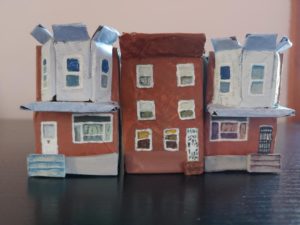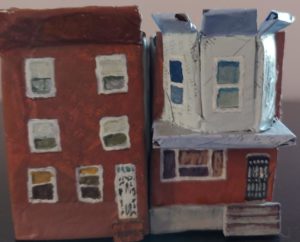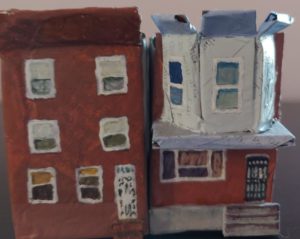
Readings: Psalm 80:1-7, 17-19; 2 Samuel 7:1-17; Galatians 3:23-29
Now when the king was settled in his house, and the Lord had given him rest from all his enemies around him, the king said to the prophet Nathan, “See now, I am living in a house of cedar, but the ark of God stays in a tent.” Nathan said to the king, “Go, do all that you have in mind; for the Lord is with you.”
But that same night the word of the Lord came to Nathan: Go and tell my servant David: Thus says the Lord: Are you the one to build me a house to live in? I have not lived in a house since I brought up the people of Israel from Egypt to this day, but I have been moving about in a tent and a tabernacle. Wherever I have moved about among all of the people of Israel, did I ever speak a word with any of the tribal leaders of Israel, whom I commanded to shepherd my people Israel, saying, “Why have you not built me a house of cedar?” [2 Samuel 7:1-7, NRSV]
Is it just human nature, this desire to project upon God what we ourselves value? Living in a lovely house of cedar beats tent living, so God must want a lovely house of cedar. In more modern terms: living in a gold filled, stained glass illuminated, marble columned sanctuary beats a single-wide trailer, so God must want one.
I don’t have a problem with ornate churches, with beautiful spaces set aside to worship God. Moving into such a space can foster my ability to appreciate God’s creation and to concentrate on seeking God and listening for the movement of the Holy Spirit. Clearly, God didn’t reject this impulse to provide a special place – after all, the temple was built just a few years later. But God’s question shouldn’t be lost on us, especially now when our houses of worship are at their most beautiful: Did I ever ask you for such a house?
I have grown in my faith because of the many beautiful sanctuaries that have provided me a place for praying, singing, preaching, and learning. But I don’t want to lose sight of an important truth:
God is pleased with these spaces not because God desires or requires them; God is pleased with these spaces because they are offerings of love made by beloved human hands. As any good parent knows, it isn’t the gift that counts: it’s the love a child put into it.
[Three Rowhouses, 2018-2019, by Colin Fredrickson]






